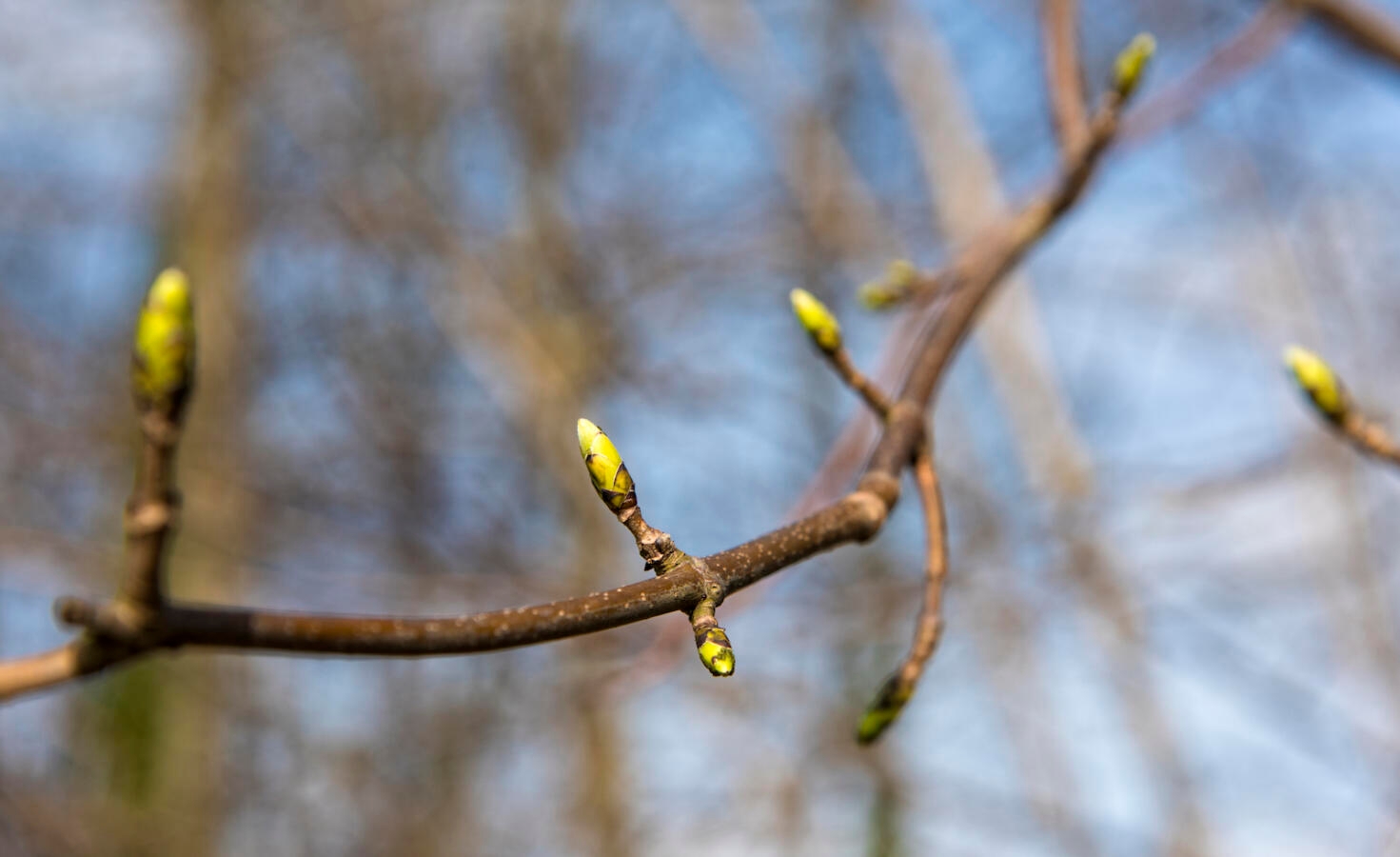My first time celebrating Tu Bishvat at my small New England congregation, I slid on the frozen walkway into the synagogue with bags of dried apricots and prunes in my hands and cans of green Israeli olives in my backpack. I had to steel myself to venture back out again for the unripe pomegranates still in my car, salting and sanding the pathway as I did. Later, after a nourishing dinner of soups and stews made from dried beans and root vegetables, the committed core of our synagogue’s members sang songs about a faraway world where the almond trees were about to be covered in fragrant blossoms, a golden sun was shining and birds were singing on every rooftop. Nothing about our frigid surroundings matched the verdant agricultural milestones we were marking together. And yet, we gathered, sang, ate, prayed and planted nonetheless.
There is something about celebrating the Jewish near year of the trees in central Maine, as we will in just over a week, that smacks of absurdity. The reality Tu Bishvat celebrates is distant, mythic and (for those of us missing Israel) even somewhat cruel. Outside, icicles dangle from drooping powerlines and the trees are skeletal. There are no buds on them — and won’t be for at least another four months. The maple sap is just beginning to run, but that phenomenon can’t be seen. The disjuncture between our present reality and our imagined one begs the question: Why are we celebrating this Mediterranean arboreal new year in snow-caked Maine?
There are a few reasons. Celebrating Tu Bishvat affirms a connection to the agricultural rhythms of our ancient homeland. And the Tu Bishvat seder, crafted by the kabbalists who lived in northern Israel in the 16th century, reminds us that divine secrets can be revealed through the contemplation of nature, a lesson we can still connect to today — whatever the temperature might be outside.
But even if we were in Israel (or California for that matter), there would still be something theologically challenging about this holiday. Jews aren’t supposed to count our chickens before they hatch. This is why Jews do not celebrate the birth of a child before they have been born and survived for over a week. Why then do we celebrate the budding of trees as opposed to their blossoming or fruiting?
With your help, My Jewish Learning can provide endless opportunities for learning, connection and discovery.
Tu Bishvat is different, the rare time where we celebrate potential — not product. Even before we are certain that a specific reality will come to fruition, we celebrate the possibility that it could come into being. A nitzan, a bud, represents what could be, not what is. A nitzan cannot and should not be consumed in its current form — it is even more delicate and inedible than a blossom or an unripe fruit. And yet, after the extended darkness and cold of winter and the precarity it represents, we need to celebrate the coming of spring. We need to affirm our hope that barren trees will once again produce fruit, and that we can know the joy of eating fresh fruit after an extended season of relying on the preserves in our pantries.
Tu Bishvat is, at its core, a repudiation of cynicism. The cynic looks at the small delicate buds emerging on branches (or in Maine, the barren landscape) and claims that the only rational response is resigned despair. Based on all physical data, winter’s end is not the season for thanksgiving or affirming future redemption. However, as the Tu Bishvat seder teaches us, the klipot, the external shells of our world, do not always reveal the truth within. We cannot see the sap beginning to run in the maple trees, but it is flowing, and when the time is right, we can tap those trees and work in community to transform that sweet water into maple syrup. We cannot always wait to celebrate and give thanks until we have achieved perfection or surety. There is a time to pray for the potential of what can be, to simply recognize and rejoice in the first sprouting.
These moments of collective joy can and should propel us to finish the job of partnering with God in creating the world we desire. We may not bring our aspirational world to complete fruition, but it is only with shared gratitude, recognition and joy that we can ever stand a chance.
This article initially appeared in My Jewish Learning’s Shabbat newsletter Recharge on Jan. 28, 2023. To sign up to receive Recharge each week in your inbox, click here.



